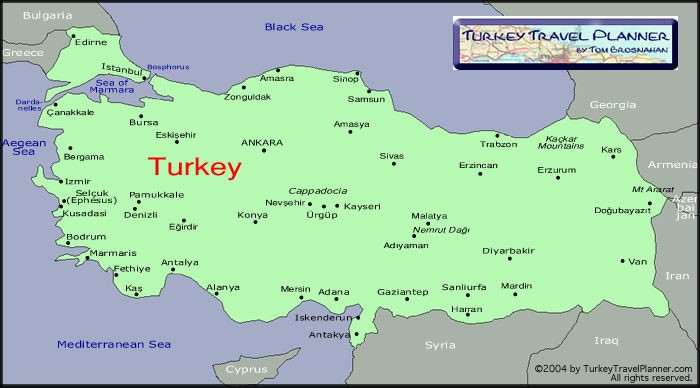Rights activists in Turkey released
October 26, 2017 | Expert Insights

Eight human rights activists who were arrested in Turkey on charges of terrorism have been released on bail. Amnesty’s Turkey director, İdil Eser was among those who will be released.
The activists had been arrested in relation to the failed coup that was orchestrated in 2016.
Background
The region that Turkey now stands has been inhabited by humans since the Paleolithic area. Around the 14th century, it became the epicenter of the Ottoman Empire. The empire reached its peak in the 16th century. The rule by the Ottoman Empire came to end in the 1920s after the Turkish War of Independence which was fought between 1919 to 1922. Kemal Ataturk played a key role in the establishment of the modern secular republic of Turkey.
Turkey is a member of the United Nations. It is also a member of the North Atlantic Treaty Organization. The nation has long lobbied to join the European Union. Membership talks were launched in 2005, but have stalled since. Other members have expressed concern over Turkey's human rights record. Recep Tayyip Erdogan has been in power since 2003 when he was elected the nation’s Prime Minister. In 2014, he became the country's first directly-elected president in August 2014 - a supposedly ceremonial role. Critics have accused him of embracing dictatorial traits.
The coup
On July 2016, there was an attempted coup against state institutions, the government and the president. When the coup was declared, the president was on vacation in a seaside resort town. A fraction of the military took over and declared martial law and a curfew. They also said that a new constitution would be instated. Erdogan appealed to his supporters to protest.
The coup failed because it did not have the public’s support. Even opposition parties condemned the coup, thus effectively ending it. Groups of soldiers began their surrender. It is still unclear as to who was ultimately responsible. The Turkish government has placed the blame on Fethullah Gulen, a US-based Muslim cleric but he has denied any involvement. The government has arrested close to 6,000 people in connection to the coup.
Around 300 people were killed during the attempt. More than 50,000 people were arrested as a result of the coup.

Analysis
The country is still ruled under the state of emergency since the failed coup. In July 2017, 10 human rights activists including Amnesty’s Turkey director, İdil Eser were arrested while attending a workshop. They were accused of plotting an uprising. A total of 11 human rights activists were charged with aiding militants. Some have been connected to failed coup allegedly led cleric Fethullah Gülen. If found guilty, they would be facing 15 years in jail.
A 12 hour hearing was held in the Çağlayan court in October 2017. At the end of the marathon session, the Turkish judge presiding over the case order the release of eight of the human rights activists after granting them bail.
Of those who have been charged, only Taner Kılıç, the Chairman of Amnesty Turkey, will remain in detention. He is on trial on a separate case.
Amnesty International’s secretary general, Salil Shetty, said in a statement: “Today, finally, we celebrate that our friends and colleagues can go back with their loved ones and can sleep in their own beds for the first time in almost four months. But any joy is tainted by the ongoing detention of Amnesty International’s chair, Taner Kılıç, whose separate trial is due to start tomorrow. These politically motivated prosecutions are an attempt to silence critical voices within Turkey but have only served to highlight the importance of human rights and those who dedicate their lives to defending them.”
Shetty added that the group will ensure that the charges are also dismissed in the near future stating, “Tonight we take a brief moment to celebrate but tomorrow we will continue our struggle to ensure that Taner, İdil and their colleagues are acquitted of these baseless charges. We will not stop until the charges are dropped and all of them are free.”
Assessment
Our assessment is that the arrests of activists in Turkey has increased fears that freedom of expression is being attacked in the country. There are growing concerns that the government will continue to encroach on people’s freedom. This will also make it more difficult for non-government organizations to continue working in Turkey.








Comments